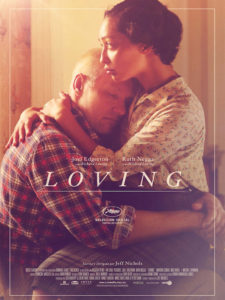Had I been born a few years earlier in the U.S. state of Virginia, my existence would have been a crime.
Until the summer of 1967, sixteen America states had laws prohibiting humans of different “races” from getting married and having children. The law was finally struck down as unconstitutional on June 12 of that year, in the now famous Loving versus Virginia, a case in which Mildred and Richard Loving fought for the right to fall in love with a person of their choice.
The Lovings were married in 1958 in Washington, D.C., where “interracial marriage” was legal. Upon returning to their native Virginia, their home was raided by police. The raid took place in the middle of the night in hopes of arresting them red-handed—i.e. while they were having sex. Initially, they were convicted of “miscegenation” and banished from their home and their state for a period of twenty-five years.
The trial judge in the case was quoted as saying, “Almighty God created the races white, black, yellow, malay and red, and he placed them on separate continents. And but for the interference with his arrangement there would be no cause for such marriages. The fact that he separated the races shows that he did not intend for the races to mix.”

That’s me (centre, at the back) along with my well-mixed family.
This I find particularly odd because the best way to judge reproductive fitness is by the healthiness of offspring, not political geography. On top of this, genetic diversity has many advantages. Just the other day, a massive study of 350,000 people from around the world found that having a more genetically diverse background improved height and cognitive ability.
For years, the Lovings lived in Washington, while fighting for the right to return home. They finally won their case in the U.S. Supreme Court on this day in 1967.
 I wanted to blog about this because, as someone with a British-Turkish father, a Grenadian-Indian mother, and a spouse from Japan, the 12th of June is an occasion close to my heart.
I wanted to blog about this because, as someone with a British-Turkish father, a Grenadian-Indian mother, and a spouse from Japan, the 12th of June is an occasion close to my heart.
If you’re interested in learning more about the Lovings, I recommend this episode of All Things Considered, which outlines their story, the court case and its implications. Also, look out for Jeff Nichols’ excellent biopic, simply called Loving .
Happy Loving Day, everybody.




